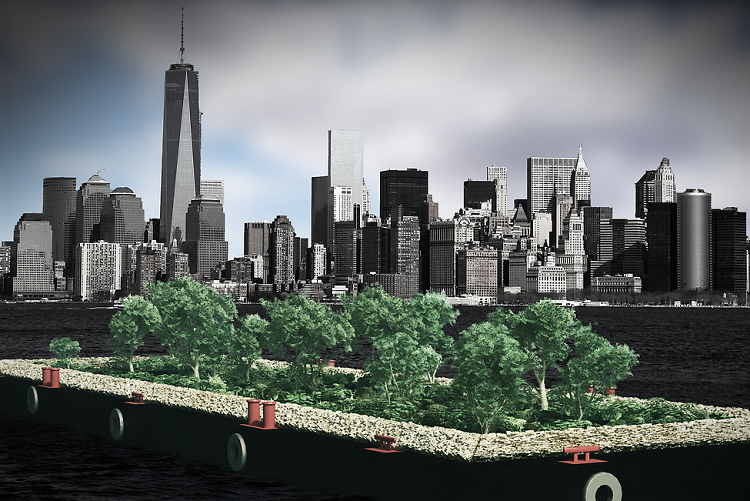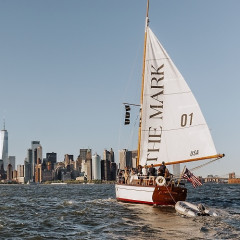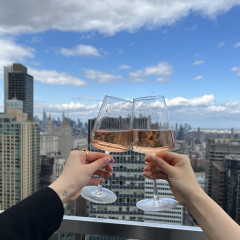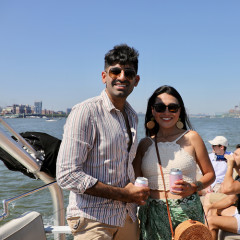
Let's be honest, most New Yorkers barely have enough square feet in their apartments to house themselves and their cat, let alone space to grow a garden with fresh produce. If you're like me, you pop on over to the local grocery store for overpriced lettuce and unnaturally large strawberries that practically scream genetically enhanced, but we all do it because eventually even Cup-a-Noodles gets boring.
It's expensive to eat organically and as a result, it's getting harder and harder for families to get healthy produce. Since all things kale and green juice hit the scene a few years ago, many people are asking questions about affordable veggies and creating more spaces for edible ecosystems in New York, because seriously who can afford a $9 chia seed Kombucha everyday?
Mary Mattingly, the brainpower behind Swale, is asking us to reimagine both food as a public service and water as a human right. What if healthy and fresh food was a public service rather than an expensive commodity? Her project that began last summer aims to secure public food in a public space through the creation of a floating garden she’s designed that will move along the Hudson River all summer long as an interactive art installation of sorts. Designed to challenge and rethink New York City's connection to the environment, Swale is built on a 110-foot by 30-foot platform that contains an edible forest garden.
Not only will it stop at certain ports every few weeks for a free farmers' market, but it will also provide a floating concert hall and art gallery. A sculpture and a service, Swale will be a provider of free healthy food at the intersection of public art and offerings. For those who decide to hop on board, they will be able to go and forage for free veggies and fruits that range from Swiss chard to strawberries and asparagus.
The project has come into fruition and plans to open sometime at the end of June. Mattingly has encouraged people to use her floating forest as a way to reimagine a new world where collaboration and cooperation is the norm. A call to action, the project is asking that we reconsider the way our food systems have worked for years in order to possibly pave pathways to create a public food system in a public space.
“I believe it is necessary to create spaces that are more interdependent throughout the city, spaces that can better provide for all of the needs people have in a city,” Mattingly wrote. “I hope Swale allows us to rethink ideals around commodities, value, and the commons.”
Look out for more updates on this edible ecosystem project as we count down the days until it launches!
[Swale Rendering by T. Craig Sinclair]


.jpg)
.jpg)



.jpg)
.jpg)
.jpg)




